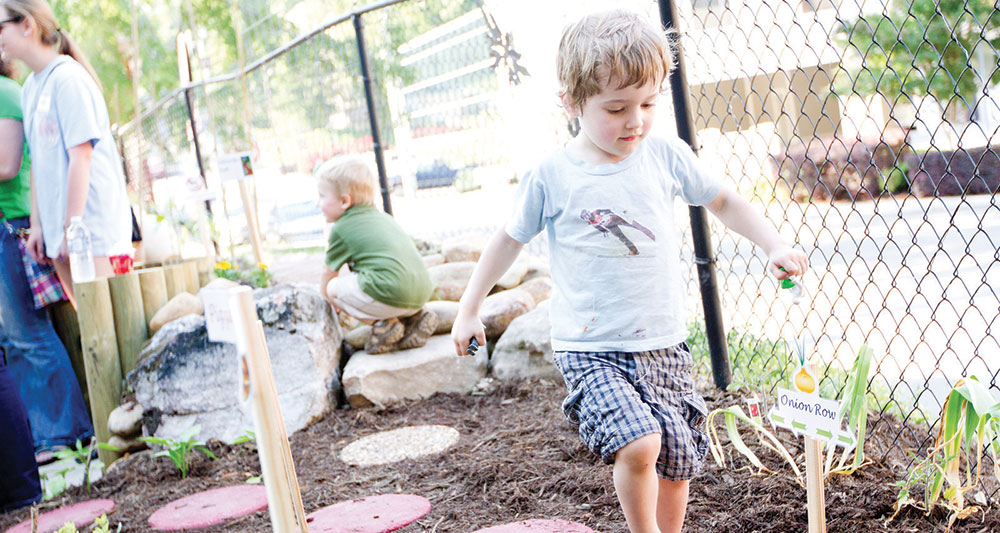The UT Early Learning Center (ELC) embarked on an initiative focused on nature-based experiences a few years ago and is passionately committed to exploring this work in our own program. Based on this experience, we believe engaging with nature is very important for all children and all families, regardless of context, and hope to support families in the community as they make efforts in this direction. In the words of an ELC preschooler, “Being outside is so cool; you get to do so much out there!”
In our own backyards
Children have the need and the right to go outside and take risks, solve interesting problems, be engrossed in new discoveries, and develop a deep appreciation for nature. Here are some tips for how to help kids engage with nature.
In our own backyards there is plenty to do, but first, schedule time, gather a few tools and materials, and learn together.
- Develop a routine of being outside for periods of time—just to be outside, not only for specific activities.
- When children get accustomed to spending time outside without a prescribed agenda, they further develop their innate creativity and curiosity, find things to do, and generate their own plans and play.
- Slow down. Children learn best when provided uninterrupted time to explore, discover, imagine, and create. Children deserve and need time to “just be.”
- Children embrace and engage space they can turn into a particular place; a place that is created by them and made their own. Often, spaces that are most magical for children are not those first considered by adults.
- Outside is a perfect place for reading, snacks, and naps. Repurpose a discarded basket and turn it into a gathering basket for newfound treasures.
- Create fairy gardens using old pottery, leaky bird baths, and wooden boxes. Create scenes with small found treasures of stones, shells, twigs, vines, bark, moss, insect and bird habitats, tiny plants, marbles, and long-lost objects discovered under the leaves.
- Write a story about your fairy garden.
- Encourage children to become scientists and make discoveries. Provide them with magnifying glasses, small or old binoculars, a field notebook, and a jar or box for observing small animals before letting them go.
- Finding and observing is just the beginning. Provide children with clipboards and pencils to sketch what they see, collect materials for collages and mosaics, and use old books for pressing flowers.
Find out more about the Early Learning Center at elc.utk.edu or the Department of Child and Family Studies at cfs.utk.edu.

